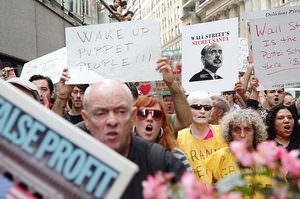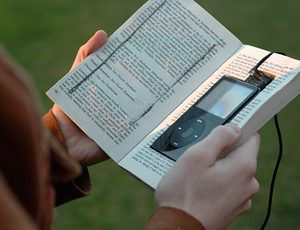Jabari Asim: Paying Homage Isn’t Plagiarism
Let's cut authors like Ian McEwan a little slack and allow him to "sample" from other works in the same way that every other artist does.WASHINGTON — Novelists are a sensitive bunch, and who can blame them? It’s not like being a rock star or a television personality, and not even dying is likely to bring a novelist any attention. More than once, I’ve watched with amusement as one world-class writer, a winner of nearly every major literary prize, strolled the streets of the District of Columbia in complete anonymity.
Appreciation, recognition, fame, they’re all rare and fleeting enough that few writers — especially those we call literary — even dare to expect or dream about them. But even small reputations are worth guarding fiercely. Take Ian McEwan, for instance. As writers of serious fiction go, he’s actually a heavyweight. But he’s probably attracting more attention for something he didn’t do than for all the prizes and acclaim he’s managed to acquire.
In late November, a news article raised questions about passages in “Atonement,” McEwan’s latest novel. The article cited similarities between certain passages and segments of “No Time for Romance,” a 1977 memoir by Lucilla Andrews. A novelist herself, Andrews died in October at 86.
While his book shares some details with Andrews’ work, McEwan never made a secret of his familiarity with “No Time for Romance.” He has praised Andrews and her book on more than one occasion, a fact he pointed out in an article defending himself in The Guardian, a British newspaper. He wrote, “I have openly acknowledged my debt to her in the author’s note at the end of ‘Atonement,’ and ever since on public platforms where questions on research are almost as frequent as ‘Where do you get your ideas from?”’
It’s hard to defend oneself without sounding well, defensive. It didn’t help that McEwan, widely acknowledged as a superior talent, has had to wrestle with such implications before. As suggestions of plagiarism floated in the air, a roster of indignant literary luminaries rose to shoot them down. John Updike, Zadie Smith, Kazuo Ishiguro, and the famously reclusive Thomas Pynchon were among the big shots who published letters supporting McEwan’s cause.
One point that many of the letters made was that novelists often read other authors’ works when creating their stories. It’s called research, as the literary editor of The Times of London noted. Another point was that deliberately echoing the language of other works — and even borrowing phrases here and there — is not the same as outright theft. If it were, Ishiguro wrote, “at least four of my own novels will have to be marked down as plagiarized.”
Peter Carey, an award-winning Australian novelist, offered a tongue-in-cheek laundry list of his own “transgressions”: “There’s a line from ‘One Hundred Years of Solitude’ in ‘Bliss.’ ‘Jack Maggs’ is scattered with little pebbles of Dickens, and all sorts of stuff stolen from his and his family’s life. ‘Oscar and Lucinda’ has a Christmas pudding lifted from Edmund Gosse’s ‘Father and Son’ and a number of consecutive zoological words practically snipped from the zoological notes of P.H. Gosse. There are also sentences from the Bible and a tourist brochure too.”
All of which suggests that we readers may need to look at writers of fiction in a different light. Perhaps in this high-tech, high-speed world of instant spectacle and YouTube fame, we prefer to keep our novelists on pedestals high up in the air, where we can imagine them plucking their tales from the clouds, fully formed.
In contrast, we have relaxed expectations with other art forms. When a young jazz saxophonist incorporates a little Coltrane in his solo, we call it quoting or paying homage. When Britney Spears nabs a dance routine from Janet Jackson, we merely shrug. When L.L. Cool J works some James Brown into his jam, we call it sampling. Makes sense, then, that novelists should demand the same freedoms. It’s probably not as gratifying as being noticed on the street, but it’s a start.
Jabari Asim’s e-mail address is asimj(at symbol)washpost.com.
(c) 2006, The Washington Post Writers Group
Your support matters…Independent journalism is under threat and overshadowed by heavily funded mainstream media.
You can help level the playing field. Become a member.
Your tax-deductible contribution keeps us digging beneath the headlines to give you thought-provoking, investigative reporting and analysis that unearths what's really happening- without compromise.
Give today to support our courageous, independent journalists.


You need to be a supporter to comment.
There are currently no responses to this article.
Be the first to respond.